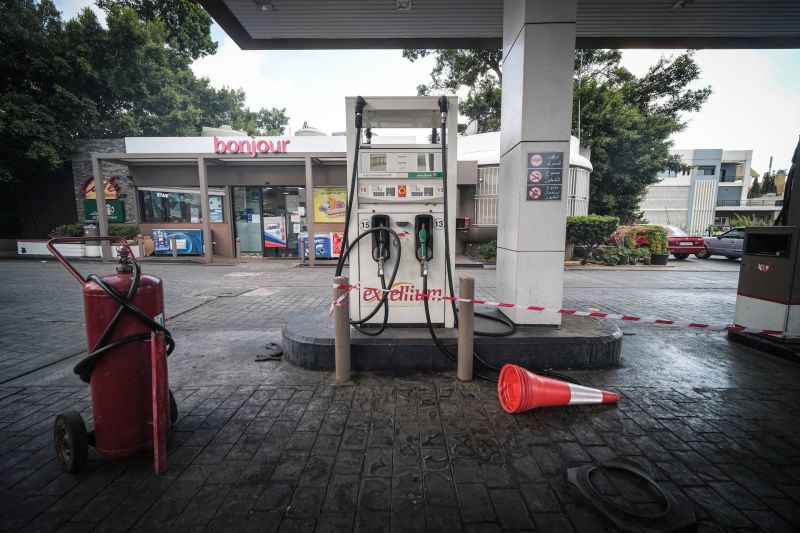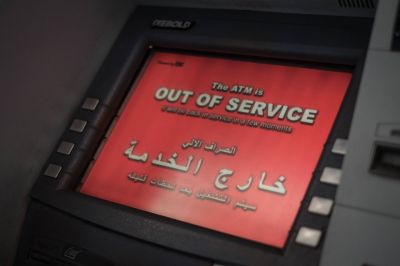
A gas station in Lebanon. (Credit: João Sousa/L'Orient Today/File photo)
BEIRUT – Lebanese motorists rushed Wednesday to fill up their gas tanks, a day after the Association of Petroleum Importing Companies (APIC) announced it was suspending its fuel distribution to the market over a new tax that would significantly raise their dues.
It was not yet clear whether gas stations might also close for business. Georges Brax, spokesperson of the Gas Station Owners’ Syndicate, did not respond to L’Orient Today’s request for comment.
The tax is part of Lebanon’s 2024 state budget, passed last Friday by Parliament. It is not yet in force as the budget has not been published in the Official Gazette.
Once in force, the new tax would require private importers to pay a combined yearly sum of around $350 million for two years, totaling $700 million — an amount deemed outrageous by APIC president Maroun Chammas, who said companies cannot afford to pay it.
“If the law passes, companies may be headed towards bankruptcy and others may stop their operations altogether, halting fuel imports to Lebanon,” Chammas said at a press conference in Beirut on Wednesday.
The fine print
The new tax, put forward by MP Wael Abou Faour (Progressive Socialist Party/Rashaya) and his party, stipulates the imposition of a 10 percent “exceptional” tax or fine on the profits of vendors and suppliers that have benefited from government subsidies before they were lifted in recent years — including petroleum importing companies. It was not immediately clear what other industries might be impacted by the tax.
Between 2020 and 2021, right after the onset of the country's economic crisis, imports of certain products, including fuel, were still subsidized by Banque du Liban (BDL). As the Lebanese lira plummeted, eventually losing more than 98 percent of its value, the subsidies made it possible for companies to accumulate more foreign currency, giving them an advantage over the rate available on the parallel market at the time.
These subsidies were later gradually lifted, against a backdrop of fuel shortages and illegal stockpiling. The 2024 budget plans to impose an exceptional tax on companies that "benefited from these subsidies."
Chammas refuted these claims, saying that it was citizens who still had access to dollars who benefitted from the subsidies, “and not private companies.”
The most recent announcement has reignited fears of another fuel crisis in Lebanon echoing the summer of 2021. At the time gas station closures and fuel shortages caused long lines for gasoline and hours-long waits for motorists to fill their cars.
Chammas called at Wednesday’s press conference for Parliament to revise their decision on the new tax.
Lebanon's pharmaceutical importers sounded the alarm on Wednesday, warning that a new tax outlined in the 2024 Budget Law would significantly increase their financial burdens. This move, they caution, could severely impact the entire pharmaceutical sector and consequently pose a "threat to the citizens' health."
This concern comes at a time when the Lebanese Petroleum Importing Companies Association (APIC) has declared a strike in objection to the same tax, which targets companies that benefitted from Lebanon Central Bank (BDL) subsidies during the national economic and financial crisis that started in 2019.
Similarly, the Food Product Importers' Union has voiced its disapproval of the tax, labeling it "unjust" and broad-reaching, affecting "everyone," including "companies that had transparently complied" with the established system for receiving and managing subsidy mechanisms. This sentiment is echoed by economic bodies that have also criticized the "improvisation and populism" that they argue have characterized Lebanese officials' decisions in the past.
In response to the growing outcry, outgoing Prime Minister Najib Mikati met with BDL's interim governor, Wassim Manssouri, at the Grand Serail on Wednesday. Additionally, MP Ibrahim Kanaan, head of the Finance and Budget Committee, which submitted the budget draft to Parliament, emphasized the need to "address the country's ills," which the budget alone cannot solve. He pointed to the importance of conducting "an audit of banking assets and restructuring the banking and public sectors."
As Lebanon faces these challenges, the proposed tax in the 2024 Budget Law stands to further inflame brewing tensions between various economic sectors, and potentially put the overall health of its citizens at risk.
